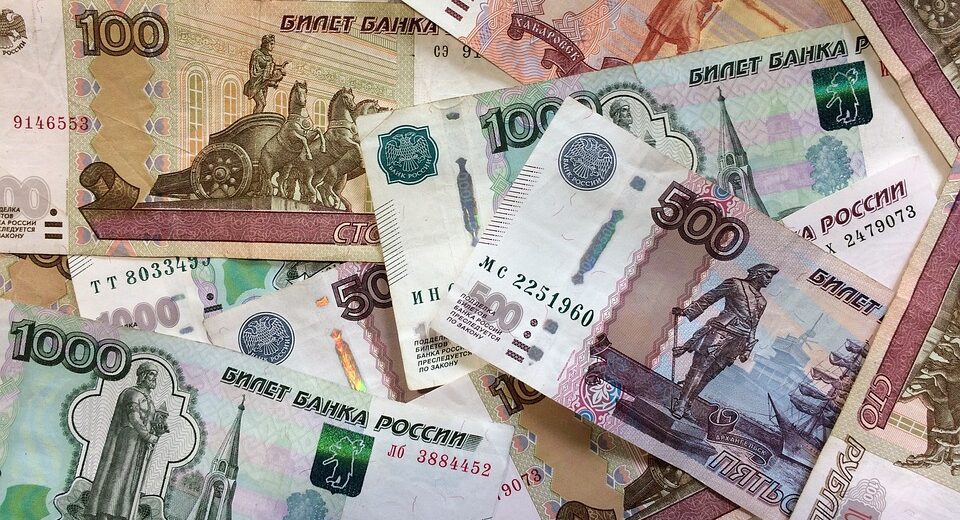What will happen to the ruble?

Ruble: facts, numbers and scenarios. Guido Salerno Aletta's analysis for Teleborsa
Let's see the issue of the devaluation of the ruble which was brought about in the market by the news of the sanctions, with many Russian citizens worried about their savings, and who were selling rubles for purchased hard currencies such as the dollar and the euro. Two measures have been taken to discourage these operations: by forcing exporters to surrender 80% of their foreign currency holdings; by raising the interest rate on the ruble to 20%.
If now you have to pay in rubles, in order to pay off a bond contracted in euros or dollars, you must still buy the necessary amount on the basis of the exchange rate. It does not matter whether to "make" a dollar or a euro 80 rubles or 100 are needed: the devaluation of the ruble or not does not affect. Depending on the case, I will have to pay 80 rubles or 100 to repay a euro or a dollar.
We come to a second question: while Russia sells gas abroad, a real good that is limited in its availability, so far it has been paid in dollars or euros, currencies that we have seen have been replicated excessively and relentlessly, only writing the figures on electronic accounting systems. Central banks that inject virtual money, without any quantitative limit, effortlessly provide the market, and therefore the buyers, with the means necessary to pay for a limited physical product.
In addition, the real interest on dollar loans and even nominal interest on euro loans are negative: money in dollars and euros is practically without cost. Indeed, one gains from borrowing, and with the borrowed sum, one buys Russian gas: it is a paradox.
And it is from this paradox that we must start.
The sanctions froze the holdings of foreign currency held by the Russian Central Bank with the correspondents of the countries that imposed them. Practically, the rubles in circulation are recorded on the liabilities side of the balance sheet against only that part of the assets which consists of the gold of the reserves and of the foreign currencies held directly. This was the attack on the ruble, which was reacted with the measures described above and now with the decision to charge for gas in rubles.
As a school hypothesis, let's imagine that Russia's decision to accept only rubles for the payment of its gas supplies is accepted: the international monetary system would change completely.
The first problem, in fact, is to get the rubles on the market. Since there are not enough of them in relation to this new substantial demand, and since there are no currency swap relations between the Russian central bank and the correspondents for which the former provides rubles in exchange for euros or dollars, and given that the Russian central bank has also been excluded from the work of the Bank for International Settlements, the one that is nicknamed the Central Bank of Central Banks, it is necessary to ask for the rubles to a Russian bank that has it available or that to acquire it makes a request to the Russian central bank .
In both cases, it is not a question of a sale of rubles against the sale of foreign currency at the exchange rate of the day, but of a loan of currency, against adequate collateral, euros or dollars, which is subject the payment of the interest rates envisaged for these operations, which have been raised from 9.5% to 20%.
If we acted differently, by selling new rubles for every request and buying euros or dollars in exchange, we would only create as much virtual currency. Instead of having to borrow rubles only creates an obligation to repay them, and this can only be done by exporting goods and services to Russia and getting rubles in exchange. These are the borrowed rubles that must be repaid.
From an increasingly virtual currency, linked to finance, as dollars, euros or yen have gradually become, we would return to a currency linked to the real economy, the ruble, which is primarily used for trade.
(Extract from an article published on Teleborsa)
This is a machine translation from Italian language of a post published on Start Magazine at the URL https://www.startmag.it/economia/che-cosa-succedera-al-rublo/ on Sat, 26 Mar 2022 06:38:07 +0000.
